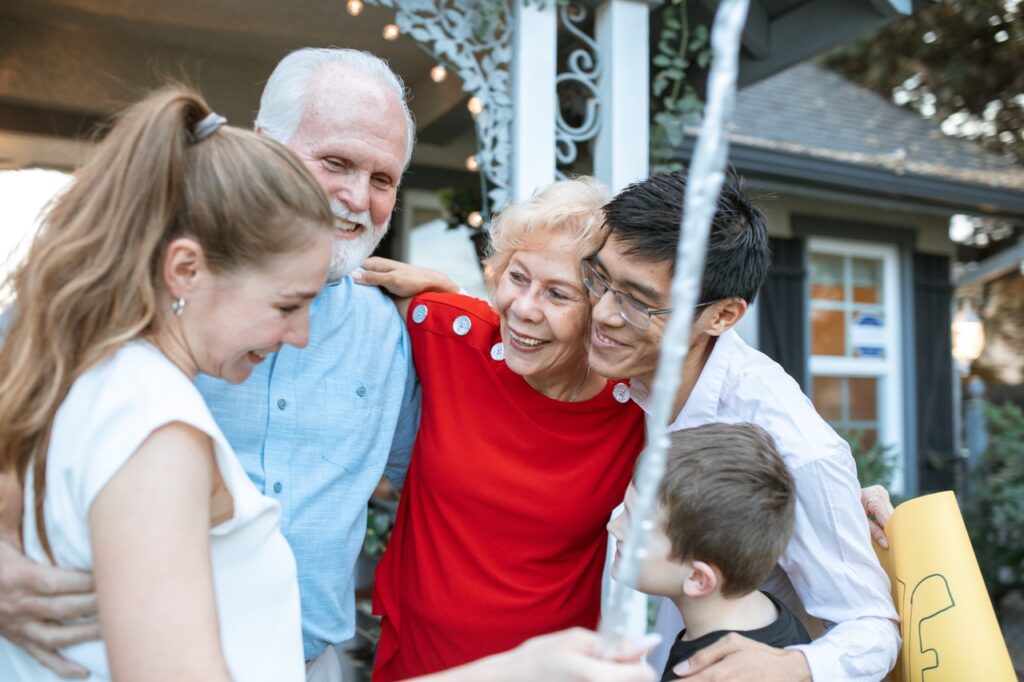 You can provide emotional support for the parents of your grandchild with autism. Most families find that facing this challenge together, with acceptance and optimism, brings the family closer. Many parents of kids with autism say that getting verbal approval and support from their own parents means a lot.
You can provide emotional support for the parents of your grandchild with autism. Most families find that facing this challenge together, with acceptance and optimism, brings the family closer. Many parents of kids with autism say that getting verbal approval and support from their own parents means a lot.
Offer emotional support and a listening ear without judgment. Be available when your son or daughter needs to vent or wants to share a success. Knowing they can come to you without being judged or receiving advice can be a relief and reinforcing. Always compliment and reinforce them.
Keep any information about the child and family confidential. Parents prefer to share information about their child, the diagnosis and needs as they choose, rather than having you or others talking about any issues the child or family is having.
There are many controversial and expensive treatments available for treating autism but choosing treatments is up to the parents. They should not have to defend their decisions or whether or not to select an intervention. That being said, you should not feel responsible for financially sponsoring therapies that are not evidence based and proven effective. Currently, Applied Behavior Analysis (ABA) is the only medically endorsed treatment that is especially effective when started at a young age.
Ask how you can be helpful. Parenting a child with autism can be exhausting. Any offers, no matter how small, will be truly appreciated. You might sponsor babysitting, meals, special programs and services, family outings or sleepovers at your home.
Provide support for your autistic grandchild’s siblings. They too often lack the attention they need. Sometimes grandparents find it easier focusing on the siblings and that provides additional respite time for parents, as well.
Focus on staying connected and committed to each other. This gives everyone in your family a sense of belonging. Families say positive things can come out of difficult experiences. For example, some find difficult experiences help them to learn patience, compassion, acceptance and respect for other.
- Send them care packages with items you know they will enjoy.
- Post photographs or pictures of local places prior to their visit to you so they can anticipate your outings together.
- Put your picture on the calendar on the date you will be reunited. The child can then anticipate when you will be together again.
- Educate yourself and your extended family about autism. Attend seminars, read books, call or email your family to get frequent updates on your grandchild’s progress.
Focus on staying connected and committed to each other. This gives everyone in your family a sense of belonging.
